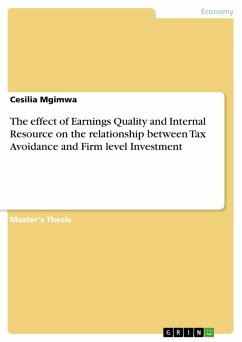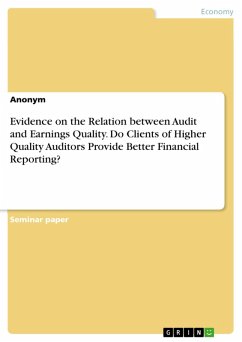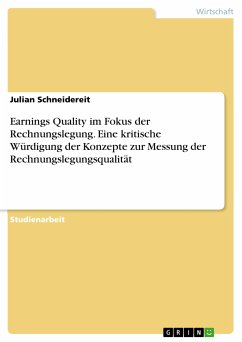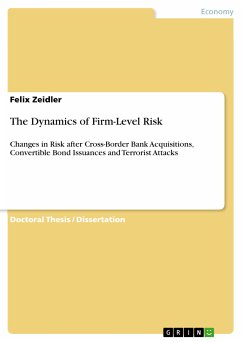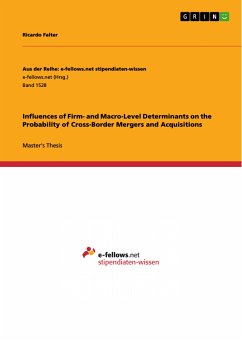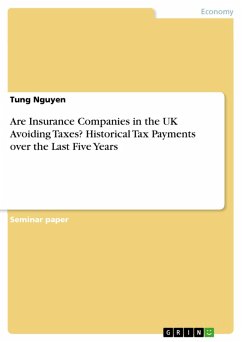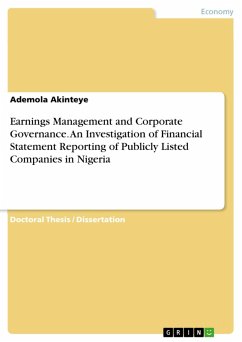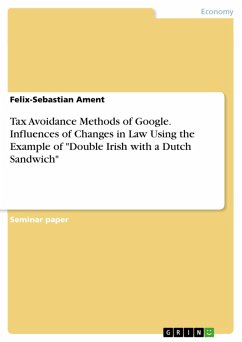Master's Thesis from the year 2019 in the subject Business economics - Investment and Finance, , language: English, abstract: The perception that corporate tax avoidance represents a shift of value from the government tax authority to shareholders has been questioned by recent studies that finds this perception to not be legitimate in the data. In this study, I point out the evidence of the positive relationship between tax avoidance and firm level investment so that to provide an evidence of the managers' behavior of using savings from tax avoidance to fund firms' investment activities. Furthermore, this study, examine the effect of earnings quality and internal resource on the relationship between tax avoidance and firm level investment. I collected data of 3085 firms from the KisValue database with accounting data for companies listed on the Korea Stock Exchange (KOSPI) from 2012 to 2017, to test the effect of earnings quality and internal resource on the relationship between tax avoidance and firm level investment. I start with year 2012 because in 2012, International Financial Reporting Standards (IFRS) adoption becomes compulsory to all listed companies in Korea. In contrast from previous research, this study looks at the relationship of tax avoidance and firm level investment from a different perspective by focusing on the effect of earnings quality and internal resource on this relationship. The evidence of this study suggests that tax avoidance is positively associated with firm level investment. In other words, when firms increase tax avoidance, the firm level investment also increases. Adding to Dobbins and Jacob (2016) and Axel and Joachim (2017) research that found lowered tax rates, induce higher investments. This study also finds the evidence that the relationship between tax avoidance and firm level investment depends on the availability of internal resource and the level of earnings quality. The relationship between tax avoidance and firm level investment is negative when the firm has greater internal resource and better earnings quality. These results suggesting that; firms with the presence of greater internal resource (i.e. internally generated cash flow) tend to rely less on tax avoidance to fund their investment than those firms with low internal resource. Similarly, firms with better earnings quality tend to rely less on tax avoidance to finance their investment than firms with poor earnings quality.
Dieser Download kann aus rechtlichen Gründen nur mit Rechnungsadresse in A, B, BG, CY, CZ, D, DK, EW, E, FIN, F, GR, HR, H, IRL, I, LT, L, LR, M, NL, PL, P, R, S, SLO, SK ausgeliefert werden.

